SIF Sherab Dorji '20 Strives to Bolster Dairy Farming Infrastructure in Bhutan
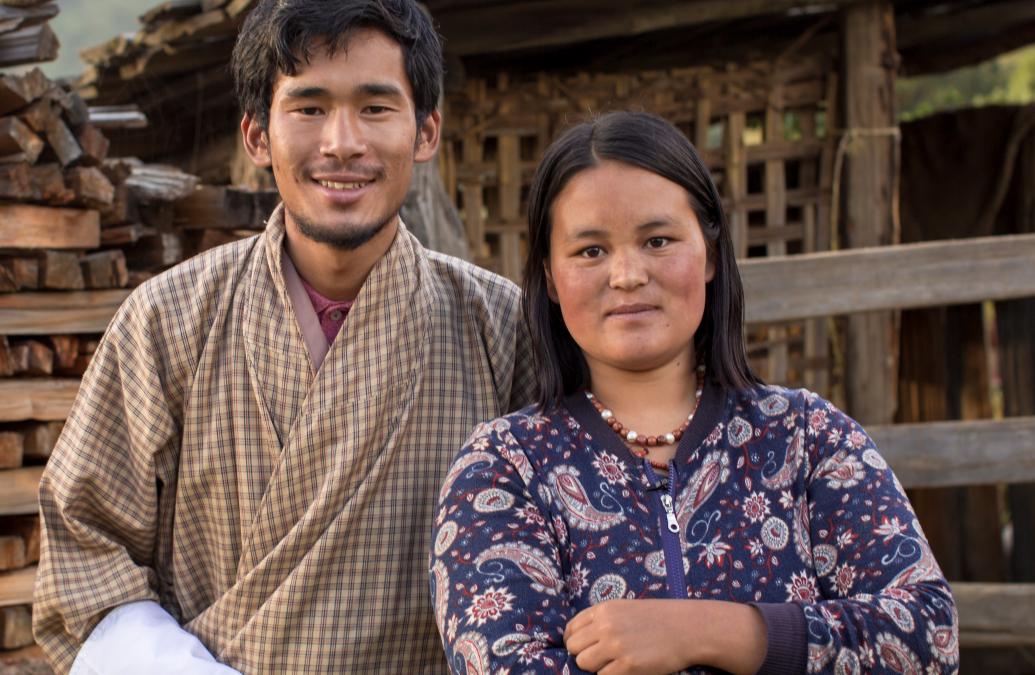
Sherab with Kezang, mother of two and new member of KDG
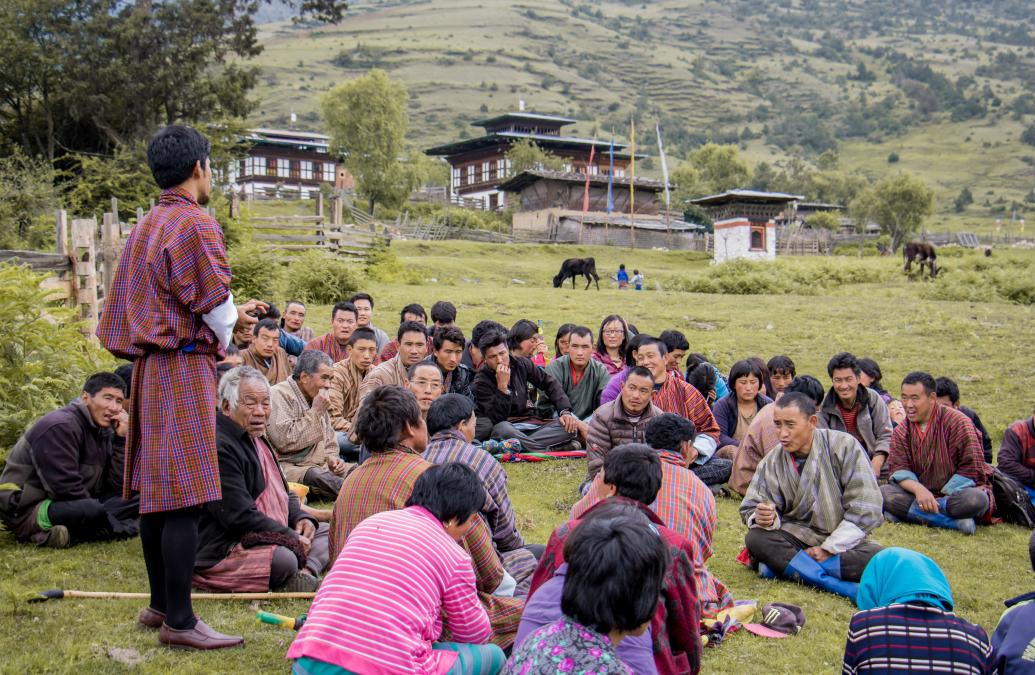
First farmer consultation, June 26 2017
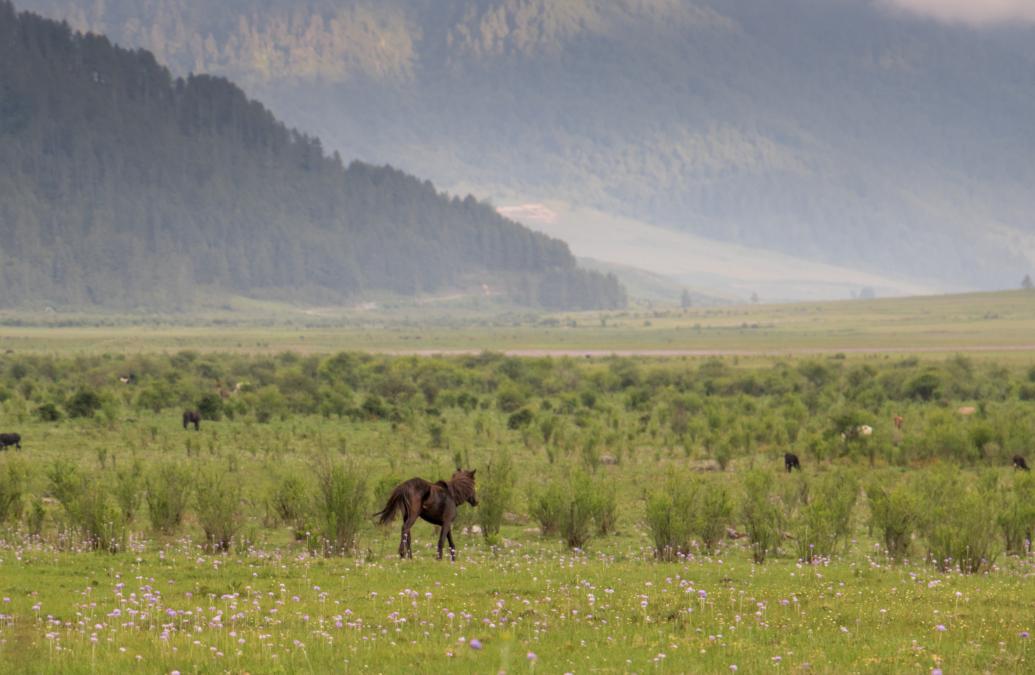
Phobjikha Valley, Bhutan
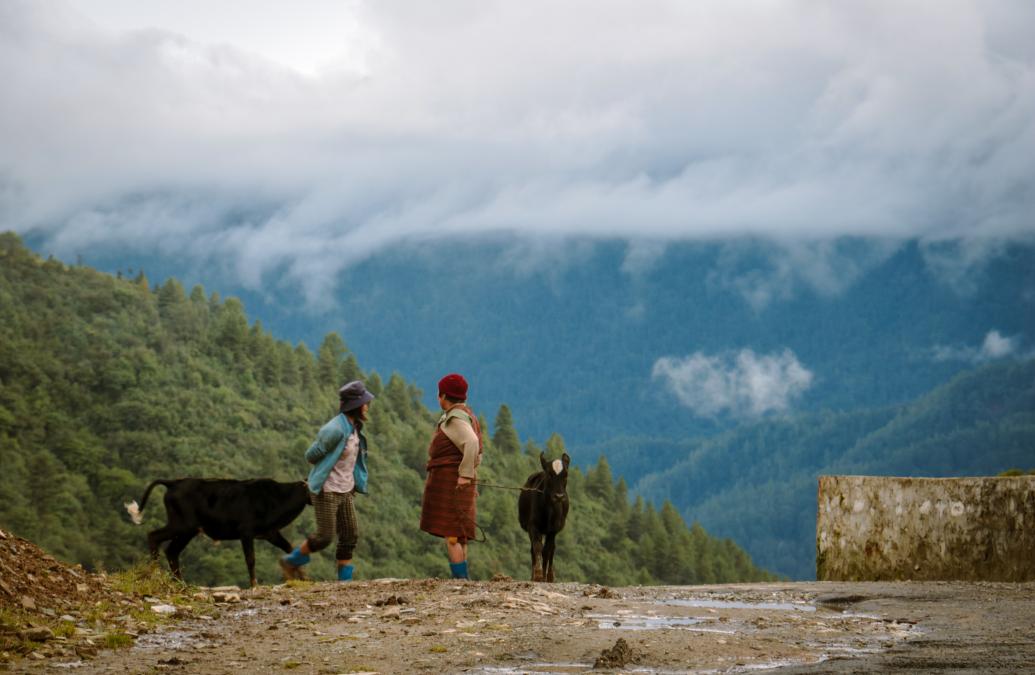
Women dairy farmers heard their cattle
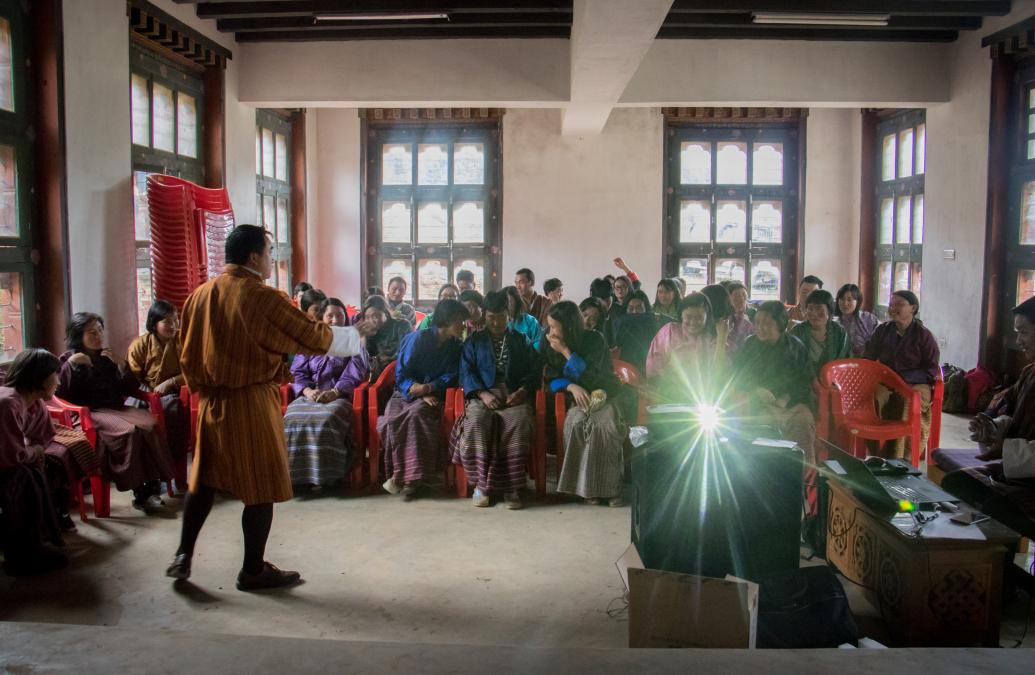
Resource persons from District Livestock Department train farmers on group formation and management
Growing up in the Phobjikha Valley in central Bhutan, Sherab Dorji, ’20 recalls dairy farming as a central part of his childhood. Every day, his mother and the other women in his community would look after and milk the cows, process the butter and cheese and take it to town to sell at markets, and to local shopkeepers and middlemen. The money his mother made from dairy farming helped pay his way through school.
But over the past few years, the dairy market in Phobjikha has shrunk. Responding to increased demand for potatoes from India, the farmers in Phobjikha largely abandoned dairy in favor of potato production—although dairying has remained a consistently essential practice within the household. But Sherab says potato farming is much less stable than dairy farming: Indian demand is unpredictable, bad weather and pests can easily destroy the crop and potatoes can only be sold once a year. Most importantly, potato farming is dominated by male farmers.
“The money that they make from potato farming is controlled by men so women have little to no financial independence or ability to make decisions about the family’s financials,” Sherab said in a phone interview from his home in Phobjikha. “Women often put a lot of work into potato farming — going into the field to plant them, or staying home to make food for the laborers — but in the end they have almost no say in how the money is invested or how it will help their kids. With dairy farming, on the other hand, women are much more in control of the process and the income. Women get a constant flow of cash every month, which increases their financial independence.”
It is with these concerns in mind that Sherab founded the Khemdro Kuenphen Dairy Group (KKDG or KDG) this year in collaboration with the district livestock department. Sherab began laying the groundwork for KDG as a Social Innovation Fellow at the Swearer Center last year. This summer in Bhutan, he began turning his plans into action. He held several stakeholders meetings, first with local farmers, then with representatives of the local government. In August, KKDG received a grant of $21,000 USD from the local government to help fund a new milk processing unit in Phobjikha valley — just one necessary element of the farmer-centric supply chain Sherab wants to create.
“We want the farmers to be able to get their products directly to the urban centers,” Sherab says. “Previously, you had middle men who were buying the dairy at a low price and selling it at a higher price in the market. We want the women to be able to get it directly to their buyers so that they can get a fair price on their products.”
The project has been years in the making. “I always had this idea of coming back to my community — even when I was in high school in the Netherlands — and giving back positively to the community,” Sherab reflected. Sherab started school when he was eight years old — the year his village finished constructing a primary school. For Sherab, starting KDG is a way of repaying his community for the labor that went into building the school and encouraging him to learn.
Support for the group among farmers has been overwhelmingly positive. “The farmers know me, so I’ve been able to talk with them thoroughly about the benefits of the group and they’ve been really enthusiastic” Sherab said.
The group currently has 41 member households, but Sherab hopes that the group can serve as a model for nearby communities, as well.
“In 5 years I hope to have at least two groups that are linked to each other, working together to improve their milk production. In 10 years time I hope to have a whole network of groups in the vicinity of Phobjikha valley,” Sherab said.
As the network grows, Sherab’s goal is that the power of these groups to negotiate a fair price on their products will increase. He hopes that one day this federation of cooperatives could be managed by a socially responsible company that will package farmers’ dairy products and put them on the shelves of mainstream supermarkets across Bhutan. This bargaining power will significantly increase the financial independence of women in Phobjikha valley, in particular.
“The money from dairy will be something they women can reliably count on year after year,” he said. “This constant flow of cash will help them do the activities they need to do without asking the husband for money and will help them to feel empowered as the heads of their households.”
In February, KDG will launch an Indiegogo campaign to raise additional funds. Sherab hopes to raise $50,000 in seed money. The money will go toward establishing local milk processing equipment and training for farmers on how to use the equipment as well as to hire a professional manager for the group. Check out KDG’s website here and be sure to check back on February 1 for information about how to donate to KDG’s indiegogo campaign.
